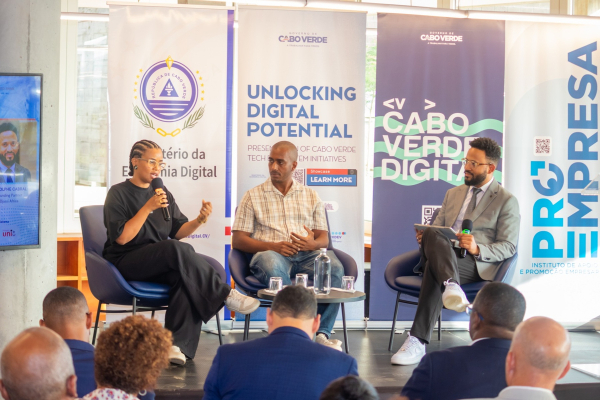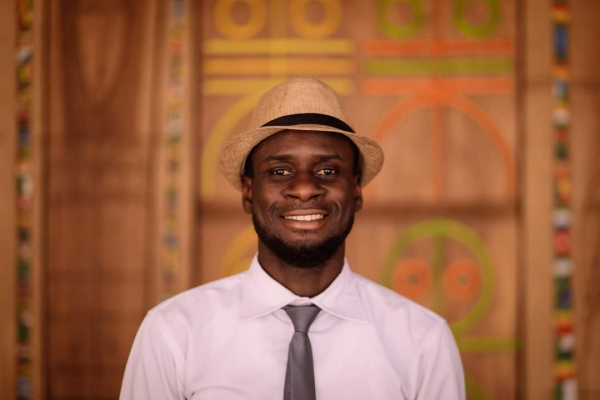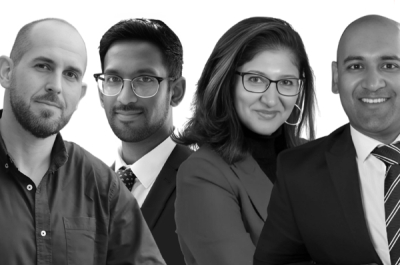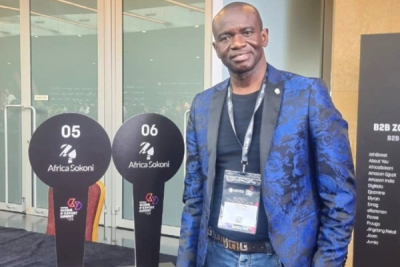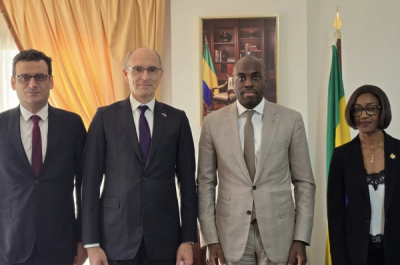-
Cape Verde launches BOOST.CV to support 150 young digital entrepreneurs with training, mentoring, and incubation.
-
The government offers extensive support including scholarships, funding, tech event participation, and a $24 million Morabeza Fund.
-
Despite ranking 75th globally and 2nd in West Africa, Cape Verde faces challenges from infrastructure gaps, investment shortages, and a cautious population favoring public jobs.
Cape Verde aims to make digital technology a core part of its socio-economic growth. The government targets increasing the digital sector’s share of GDP from about 5% in the near future.
On July 28, the Cape Verdean government launched the BOOST.CV programme. It intends to back 150 young entrepreneurs in the digital sector by offering training, mentoring, and project incubation.
Deputy Prime Minister Olavo Correia said, “This is not just a technological tool, but a public policy instrument designed to generate real impact. We firmly believe that Cape Verdean talent, both on the islands and in the diaspora, is our greatest resource. And it is our responsibility as a State to create the conditions for this talent to flourish and innovate.”
BOOST.CV complements earlier measures. In May, Pedro Lopes, Secretary of State for the Digital Economy, told Agence Ecofin that the “Cape Verde Digital” programme is a flagship initiative. “Through digital.cv, you can explore our ecosystem. We support 200 young people annually via scholarships and fund around 100 start-ups with two co-founders receiving six minimum salaries, plus logistical and marketing assistance. The Go Global programme finances participation in international tech events.”
Other programmes include "Reinvent Cape Verde," where start-ups solve challenges set by public and private institutions via hackathons, and the Morabeza Fund, a $24 million fund geared toward growing tech start-ups led by youth and women.
Lopes also highlighted regulatory progress, noting a dedicated start-up law with tax benefits, a special technology economic zone, and modern laws on data protection and digital transactions. The government has simplified business registration, launched visas for digital nomads, and opened a technology park.
Cape Verde’s start-up ecosystem ranks 75th worldwide and 2nd in West Africa, according to StartupBlink’s Global Startup Ecosystem Index 2025. The report notes that start-ups face challenges from poor physical infrastructure and a weak investment climate. Additionally, many citizens prefer stable public sector jobs and view entrepreneurship as risky.
Isaac K. Kassouwi
He designs agricultural tools in Côte d'Ivoire. He works with local producers to develop machinery and create services that structure local value chains.
Daniel Oulai (photo), an Ivorian social entrepreneur, focuses on sustainable agriculture, agroecology, and food sovereignty. Born in Liberia and raised in his father's home country, Côte d'Ivoire, he founded and leads the startup Grainotech.
Launched in 2017, Grainotech is an agri-tech company based in Abidjan. It develops solutions to transform local agricultural practices through innovation and digital technologies. The company aims to sustainably structure plant and animal value chains while integrating biodiversity, economic inclusion, and food autonomy.
Grainotech has established an ecosystem covering the entire agricultural chain, from animal reproduction to feed production. This includes engineering tools to reduce post-harvest losses and digitally assisted distribution systems. The company supports small producers by training them, providing equipment, and facilitating market access. Grainotech aims to reach 60,000 farming families by 2030.
Among its tools, Grainotech uses digital platforms, school farms, and a Fablab. This Fablab is a space for designing and sharing open-source solutions, such as the connected solar incubator. The initiative relies on dialogue between scientific research and farmers’ knowledge to develop tools adapted to local realities.
"We have developed a connected solar incubator that allows any farmer in a rural area without access to electricity to reduce egg hatching losses," said Oulai. "It is made from recycled materials, and it's an open-source technology that any farmer can replicate."
Daniel Oulai earned a master's degree in agricultural development in 2016 from AgroParisTech. He began his career in 2013 as program director at ASBL Kouady, a youth association supporting community development in Côte d'Ivoire. From 2018 to 2025, he worked as a training manager at the International Rescue Committee in Côte d'Ivoire. He also served as a consultant for the International Organization for Migration (IOM–UN Migration) from 2023 to 2025.
In 2017, he received the Initiative Climat Afrique francophone award at COP 22 in Morocco. He won the Orange Social Entrepreneur Prize in Côte d'Ivoire in 2018. He also received the Pierre Castel Prize, awarded by the eponymous fund, which recognizes high-impact agricultural projects led by young African entrepreneurs.
Melchior Koba
-
HAVAÍC’s African Innovation Fund reached \$50M after a second close with $25M from Sanlam and others.
-
The fund backs high-impact African startups; recent investments include SAPay and Sportable.
-
Amid weak VC recovery, HAVAÍC targets scalable tech growth across fintech, healthtech, and more.
South African venture capital firm HAVAÍC announced on Tuesday, July 29, the second close of its African Innovation Fund, which now totals $50 million. This latest phase secured an additional $25 million from Sanlam Multi-Manager and existing investors, including Fireball Capital and the SA SME Fund.
These supports are “testament to our track record for not only delivering leading returns by supporting African-born businesses, but also creating meaningful social and economic change through our investments. Together, we can continue supporting our continent’s dynamic tech entrepreneurs and grow African VC to new heights," said Ian Lessem, managing partner at HAVAÍC.
Launched in August 2024, this third fund targets post-revenue African startups that show high growth potential and measurable impact. The fund recently invested $1 million in SAPay, a South African financial technology firm that digitizes payments in the minibus taxi sector. HAVAÍC also increased its stake in Sportable, a startup developing real-time sports tracking technologies.
A Rebound in African Venture Capital That Remains Fragile
The year 2023 saw a sharp halt in funding for African startups, with a 36% decline and less than $3.2 billion raised overall, down from over $6 billion in 2022, according to Africa: The Big Deal. In 2024, amounts raised remained modest at $2.2 billion, the same sources reported.
HAVAÍC's portfolio includes 22 startups active in 183 countries, with six notable exits. These exits include the sale of RapidDeploy to Motorola Solutions in February 2025 and the merger between hearX and U.S.-based Eargo. HAVAÍC continues to pursue a strategy focused on building globally scalable African tech champions.
Beyond just funding access, the capital raised by HAVAÍC is expected to bolster the African tech ecosystem. It aims to support the scalability of innovative companies in key sectors such as financial technology, agricultural technology, health technology, and education technology. For institutional investors like Sanlam, this move seeks to capture the long-term potential of a developing market by relying on experienced local partners.
The challenge remains substantial. According to the African Private Capital Association, the continent still attracts less than 1% of global venture capital. Initiatives like HAVAÍC's Fund II therefore, act as catalysts to draw both local and international capital towards Africa's most promising companies.
Samira Njoya
Malawian engineer and entrepreneur Sanga Kanthema is reshaping healthcare in southern Africa through biomedical innovation and robotics. Based in Blantyre, he leads Dolphin Health Innovation, a start-up designing smart medical devices for low-resource environments.
Kanthema, who works at the intersection of electronic engineering and equipment manufacturing, focuses on building tools that meet the realities of rural Africa. Since founding Dolphin Health Innovation in 2018, he has pushed to equip healthcare systems with telehealth technologies tailored for areas with weak infrastructure.
His company develops real-time ECG sensors that can transmit cardiac signals remotely, even in zones with limited connectivity. These devices rely on algorithmic data compression and intuitive mobile interfaces, allowing for continuous monitoring, early diagnosis, and remote intervention.
Kanthema also founded Qubix Robotics in 2022 to drive local manufacturing. The company builds CNC machines, 3D printers, and robotic systems to automate industrial production across healthcare, transport, and telecom sectors. Its mission: to strengthen Africa’s industrial independence.
Beyond entrepreneurship, Kanthema champions tech education. As a TME Education ambassador, he promotes electronics training in underserved regions. He also represents IdeaXme, a global network supporting socially-driven science and innovation.
This article was initially published in French by Melchior Koba
Edited in English by Ange Jason Quenum
Ebrima Fatty, a Gambian entrepreneur with over two decades of experience in finance and technology, is connecting local producers, retailers, and consumers through a digital platform he created.
Fatty is the founder and CEO of AfricaSokoni, a London-based e-commerce company launched in 2017. The platform targets African markets, with a strong focus on Kenya.
AfricaSokoni, which means "market" in Swahili, links local businesses, producers, and artisans to regional demand. It also gives individuals easy access to a broad range of goods through its user-friendly online interface.
The platform supports small and medium-sized enterprises (SMEs), farmers, and artisans with tools for supply chain management, financing, and digital promotion. For everyday consumers, AfricaSokoni offers products in electronics, fashion, beauty, home appliances, and telecommunications.
AfricaSokoni integrates services like inventory management, stock tracking, automated orders, and supplier relationship management. The company also builds partnerships to help small businesses manage cash flow and access services like marketing, content creation, packaging, and logistics—even paving the way to international markets.
"AfricaSokoni is a comprehensive platform dedicated to empowering the MSME sector in Africa and helping businesses grow and thrive. If you are a small or medium-sized business looking to succeed in Africa, we invite you to join our platform and discover the many ways we can support you," the company says.
Alongside his entrepreneurial work, Fatty serves as a product manager at the Islamic Development Bank (IsDB) in Saudi Arabia.
He earned his Master's degree in Accounting and Finance from the University of Maiduguri, Nigeria, in 2000.
Fatty began his career the same year at Deloitte as a senior auditor. In 2001, he joined the Gambia Capacity Building for Economic Management Project as financial controller. There, he worked on strengthening government capacity in economic policy, judicial reforms, and private sector development until 2005.
This article was initially published in French by Melchior Koba
Edited in English by Ange Jason Quenum
Gabon is deepening international partnerships to fast-track its digital transformation. After recent discussions with Botswana, President Brice Clotaire Oligui Nguema has now turned to Turkey for support.
On July 29, Mark Alexandre Doumba, Gabon's Minister of the Digital Economy, met with Can İncesu, Turkey's Ambassador to Gabon, to discuss expanding digital cooperation.
During the meeting, Doumba presented Gabon’s digital roadmap. He emphasized four key priorities: modernizing public administration, expanding digital infrastructure, ensuring data governance and technological sovereignty, and training young digital talent.
Ambassador İncesu expressed Turkey’s interest in supporting Gabon’s efforts. He highlighted potential cooperation in e-government systems, electronic signatures, remote payment solutions for public services, and telecom infrastructure development in underserved areas.
Turkey ranks 27th out of 193 countries on the UN E-Government Development Index (EGDI), with a score of 0.8913, well above the global average of 0.6382. It scores 0.9225 in online services, 0.9192 in human capital, and 0.8322 in telecom infrastructure.
In 2024, Turkey reported 87.3% internet penetration and 96% mobile coverage, according to the International Telecommunication Union (ITU). On the 2025 ICT Development Index, Turkey scored 88.5 out of 100.
Gabon currently ranks 121st globally on the EGDI, with a score of 0.5741. The country performs strongly in telecom infrastructure (0.8263) but lags in online services (0.3188) and human capital (0.5772).
Despite these gaps, Gabon aims to boost the digital sector’s share of GDP to 10–12% by end-2025, up from around 5%. The government also wants to diversify the economy and reduce reliance on extractive industries by investing in digital tools and services.
While both sides expressed strong intent, the partnership remains at an early stage. So far, no official agreement has been signed. The two parties agreed to continue technical discussions to identify high-impact projects for Gabonese citizens.
The road to a full partnership still needs building. Future meetings will determine the real scope and effectiveness of this cooperation.
This article was initially published in French by Isaac K. Kassouwi
Edited in English by Ange Jason Quenum
Nigeria is advancing its digital transformation agenda through a partnership between NITDA and Google. Director General Kashifu Inuwa and Google’s VP Marcus Jadotte met with key government figures, including Ministers of Interior, Communications, and Education, as well as the National Security Adviser.
NITDA and Google share a vision to position Nigeria as a West African leader in AI and cybersecurity. Their efforts focus on equipping students with digital skills, preparing a future-ready workforce, and improving national productivity.
This partnership is also expected to attract foreign investment, support national security through digital intelligence, and drive inclusive economic growth.
He analyzes user behavior, pinpoints challenges, and then converts those limitations into successful products. Leveraging his expertise in marketing and strategy, he develops services that appeal to a broad audience.
Elias Mahugnon Missihoun (photo), a Beninese entrepreneur, is the founder and CEO of Axa Zara, a company that designs digital tools for individuals and businesses using technical and creative talent.
Founded in 2019, Axa Zara develops technology solutions now used by over 150,000 people globally. The company states its mission is to expand access to digital services in Africa.
Among its products is Zeyow, a platform allowing users to generate virtual bank cards in minutes for online payments at reduced and transparent rates. Axa Zara also developed Moneroo, a tool for businesses to centralize multiple payment gateways through a single integration. This solution aims to simplify operations, reduce costs, and improve customer relationship management.
The company also offers Mailzeet, an infrastructure for sending transactional emails. This service enables real-time tracking of message performance using indicators such as open and click rates to optimize campaigns. Lastly, Chariow provides an interface for creating and selling digital products accessible worldwide.
Elias Mahugnon Missihoun earned a bachelor’s degree in marketing, communication, and business in 2022 from Benin’s private university ISM Adonaï. He also holds an entrepreneurship and leadership certificate from HEC Morocco and a business strategy certificate from Harvard Business School Online.
Melchior Koba
-
Senegal and Alibaba Cloud signed a $5M deal to host Dakar 2026 Youth Olympic Games on sovereign cloud infrastructure.
-
Agreement includes local data hosting, training 200 engineers, and post-Games use as national public cloud.
-
Supports Senegal’s digital sovereignty strategy and follows PM Sonko’s June 2025 China visit.
The Senegalese government announced on Monday, July 28, it signed a memorandum of understanding with China’s Alibaba Cloud in Hangzhou. The initiative aims to provide secure, high-performance, and sovereign cloud infrastructure for the Youth Olympic Games, scheduled for Dakar in 2026. It will also establish a lasting digital ecosystem in Senegal.
According to Selina Yuan (photo, center), Vice President of Alibaba Group and President of Alibaba Cloud Intelligence International, this is the first time a world-class cloud technology will support an Olympic event in Africa. She added that Alibaba aims to deliver an efficient, secure, and innovative digital experience for athletes, organizers, and spectators through its proven cloud infrastructure and AI capabilities.
The agreement includes an initial investment of $5 million to deploy Alibaba Cloud’s hybrid Apsara Stack solution. This will allow for local data hosting that complies with international standards. The partnership also covers training 200 cloud engineers, creating a technology center of excellence, and implementing digital services for the Youth Olympic Games, including ticketing, e-transport, and live streaming. After the event, the infrastructure is expected to become a national public cloud to support public and private sector services.
This partnership follows Prime Minister Ousmane Sonko’s official visit to China in June 2025. It aligns with the "New Deal Technologique," Senegal's national strategy to boost digital sovereignty through innovation, local infrastructure, and training. The agreement also marks a new step in strengthening technological ties between Dakar and Beijing.
With this initiative, Senegalese authorities aim to make the Youth Olympic Games a technological springboard and reinforce their digital sovereignty strategy. Developing local expertise through training 1,000 young people via the Alibaba Cloud Academy and establishing robust infrastructure should help Senegal accelerate its digital transformation while promoting innovation and skilled employment.
Samira Njoya
Charles Oligbo, a Nigerian fintech entrepreneur based in the United States, rethinks how banks connect with their customers through digital innovation. He founded and leads Sawport Inc, a company that modernizes banking by creating virtual branches powered by artificial intelligence.
Since its launch in 2021, Sawport developed a platform that replicates physical bank interactions online. The “Virtual Branch” environment allows customers to communicate with advisors in real time via videoconference, eliminating the need for traditional phone calls or emails.
The platform integrates multiple features, including audio and video calls, instant messaging, appointment scheduling, automatic call-back, identity verification, facial recognition, electronic signatures, omnichannel management, real-time translation, and automated multilingual support.
In addition to running Sawport, Oligbo serves on the executive committee of the North American Fintech Coalition. This group supports credit unions and community banks across the US and Canada, advancing technology adoption.
Oligbo holds a bachelor’s degree in computer and electrical engineering from the University of Akron and a bachelor’s in computer and information sciences plus a master’s in management information systems from Park University.
He began his career in 2005 with an electrical engineering internship at FirstEnergy, a US utility company. He then worked as a support engineer at IT firm VeeMost Technologies in 2008. In 2013, he became digital project manager for Seattle’s public administration. In 2015, Oligbo took the role of technical director for projects at Wondr Health, supporting digital transformation in Dallas. From 2019, he led implementation at fintech Alkami Technology. Between 2023 and 2024, he managed innovation programs at BSN SPORTS, a US sports equipment supplier.
This article was initially published in French by Melchior Koba
Edited in English by Ange Jason Quenum
More...
Nigeria and Google are expanding their partnership to accelerate the country’s digital transformation, focusing on artificial intelligence (AI), cybersecurity, and digital education.
On July 25, the National Information Technology Development Agency (NITDA) and Google reaffirmed their commitment to making Nigeria a regional leader in AI and cybersecurity. NITDA Director General Kashifu Inuwa met with Google Vice President of Government Affairs and Public Policy (Cloud), Marcus Jadotte, during a series of strategic meetings in Abuja.
The discussions zeroed in on four key areas: integrating AI into public services, digitising the education system, strengthening cybersecurity frameworks, and driving local innovation. Google pledged to support Nigeria’s push to modernise public institutions by expanding cloud infrastructure and cutting tech costs.
These talks followed Google’s recent announcement of a $37 million investment to boost AI development in Africa. The funding will support research, training, infrastructure, and the design of AI solutions tailored to African contexts. As part of this expansion, Google recently opened an AI community centre in Accra, Ghana, underlining its commitment to long-term presence in sub-Saharan Africa.
The timing of this renewed partnership aligns with Nigeria’s broader digital ambitions. The government is intensifying efforts to build a resilient digital ecosystem, anchored by its “3MTT” (Three Million Technical Talent) programme. The initiative aims to train millions of young Nigerians in future-proof digital skills, with AI as a central pillar.
Google’s collaboration could play a critical role in scaling local talent, boosting innovation, and generating homegrown solutions for Nigeria’s economic and social challenges.
This article was initially published in French by Samira Njoya
Edited in English by Ange Jason Quenum
He aims to streamline everyday services in Algeria. His approach involves experimenting with and implementing practical solutions within the local technology sector.
Mohamed Salah Tourab (photo), an Algerian technology and innovation entrepreneur, is the co-founder and CEO of Wajeez Technologies. Through the startup, he aims to integrate new technologies to improve service delivery across Algeria.
Wajeez Technologies, founded in 2018 as FoodBeeper, specializes in logistics and on demand services in North Africa. The company's mission is to simplify daily life by providing access to meal delivery, groceries, errands, and mobile top ups through a single digital platform.
Available on iOS and Android, the Wajeez Technologies mobile app functions as a "super app." It allows users to place online orders from hundreds of partner shops and track deliveries in real time. Deliveries typically complete within an hour in urban centers.
The platform includes a loyalty and subscription program offering cashback, bonus points, accelerated rewards, and exclusive access to a courier service for fast sending or receiving of items. It also provides a dedicated interface for local merchants to boost visibility, increase demand, and independently digitize order management.
Before Wajeez Technologies, Tourab co-founded DZ Tenders, a leading platform for monitoring and analyzing public tenders in Algeria, where he served as CEO until 2020. In 2020, he also helped launch Kawarir, an online store for artisanal products.
Melchior Koba
-
340,000 used Tik Tak loans in 2024 to support business or urgent needs, Orange reports.
-
Loans range from 5,000 to 1 million CFA francs, with AI-based eligibility via Orange’s Max It app.
-
Main users: traders (35%), professionals and civil servants (22% each), farmers/fishers (9%).
340,000 individuals accessed Tik Tak loans in 2024, Orange informs in its 2024 Corporate Social Responsibility report. The document states the loans enabled clients to fund their businesses, expand facilities, or invest in equipment.
Tik Tak loans provide a simple and convenient financing option for Orange Money users, allowing quick access to funds. Orange Bank Africa supports these loans, but Orange partners with other banks in countries where Orange Bank Africa does not operate.
Users' borrowing capacity is determined through Orange’s Max It super app. The report explained that artificial intelligence and Orange Money data allow users to instantly know their borrowing capacity before applying.
The standard Tik Tak loan allows users to borrow between 5,000 CFA francs, about $9, and 50,000 CFA francs. Tik Tak Plus and Tik Tak Prestige subscribers can borrow up to 500,000 CFA francs and 1 million CFA francs, respectively. Traders make up 35% of the service's users. Individuals in specialized professions like healthcare, crafts, and services, along with civil servants and teachers, each account for 22%. Farmers and fishers represent the smallest group at 9%.
Beyond these figures, the Tik Tak service is becoming a tool for strengthening community economic resilience. For many users, this microcredit helps cover urgent expenses and boost productivity. Aubin, a trader in Côte d’Ivoire, stated that a 300,000 CFA franc Tik Tak loan allowed him to buy inventory and restart his business after a difficult period.
Adoni Conrad Quenum
Ahmed Zaki focuses on boosting financing access for small and medium-sized enterprises (SMEs) in Egypt. After working in banking, he co-founded Flend to test digital tools that meet the cash flow needs of smaller companies.
Ahmed Zaki, an Egyptian entrepreneur and CEO of Flend, is leading this Cairo-based startup that creates digital financing solutions tailored for SMEs.
Founded in 2022 by Ahmed Zaki, Nehal Helmy, and Saif Edeen El Bendari, Flend provides fully digital short-term cash loans. The platform handles every step—from registration and credit scoring to electronic signatures and installment collection.
Flend links with over twenty technical partners that manage SME value chains across agro-industry, e-commerce, manufacturing, retail, and export. The Egyptian Financial Regulatory Authority officially recognizes Flend as a digital non-bank financial institution.
The startup recently raised $3 million in a seed round that combines equity and debt financing, led by Egypt Ventures. Ahmed Zaki said, “This round allows us to finance SMEs where they do business—within the platforms that drive Egypt’s economy.” He added, "We’ve seen rising demand and are ready to scale our reach."
Flend, Egypt’s pioneering digital lending platform for small and medium-sized enterprises (SMEs), has successfully closed a $3 million seed funding round to digitally transform SME lending in Egypt.
— InnovationVillage (@innovationville) July 23, 2025
Click the link to read more:https://t.co/NgyopRNeVd#innovationvillage
Ahmed Zaki earned a bachelor's degree in international business from the Modern University for Business and Science in Egypt in 2006. He later completed a master’s in financial mathematics at The George Washington University School of Business in the United States in 2017.
He began his career in 2007 at Arab Bank as a corrective loans manager. In 2010, he joined CIB Egypt bank, serving as a market risk specialist, credit analyst, business analysis manager, and commercial analysis director during his tenure.
This article was initially published in French by Melchior Koba
Edited in English by Ange Jason Quenum


